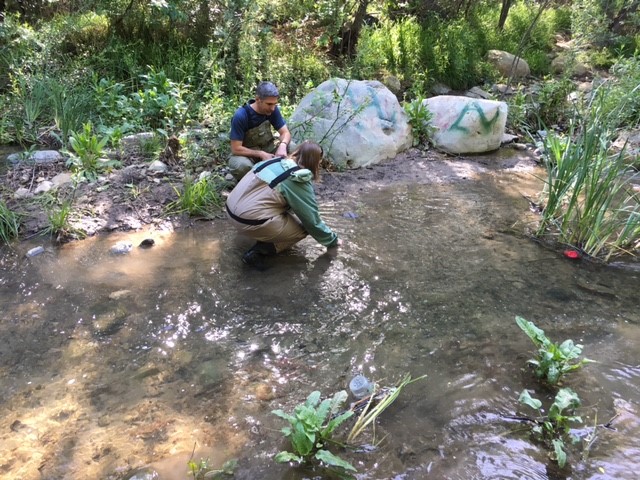The SMC invests in high-quality science and engineering research to build a strong technical foundation upon which to optimize the effectiveness of stormwater management decisions being made by both regulatory and regulated agencies. Every SMC project results in at least one published technical report, and much of the SMC’s work also is featured in peer-reviewed scientific journals and at scientific conferences.
To access the SMC’s Research Agendas and other SMC technical publications, go to the Publications section.
To receive email notifications when the SMC issues RFPs, contact the Southern California Coastal Water Research Project (SCCWRP) at it-help@sccwrp.org and request to be added to SCCWRP’s RFP email listserv. SCCWRP is the SMC’s Budget Manager and issues RFPs on behalf of the SMC.

Five-year SMC Research Agendas
The SMC develops a long-term Research Agenda that guides its priorities and directions over a five-year period. Developed by an independent expert advisory panel, the SMC Research Agenda is a forward-looking document that lays out the SMC’s strategic research priorities. Each SMC Research Agenda serves as a roadmap and a guide to help Steering Committee members decide which projects to prioritize and fund over the coming five years.
The development of each SMC Research Agenda starts when the SMC assembles a panel of independent technical experts with backgrounds in areas like hydrology, civil engineering, environmental engineering, chemistry, ecology, toxicology and modeling. The SMC Steering Committee begins by orienting the expert panel to research needs and priorities that the SMC could pursue. Then, the panel deliberates and comes to consensus on a set of projects and programs that the panel agrees the SMC should prioritize over the coming five years. SMC member agencies are invited and encouraged to provide input and offer perspectives during the panel’s deliberations.
Management impact
Nearly every research project undertaken by the SMC has had an impact on stormwater management across southern California. SMC projects routinely lead to:
- Modifications to NPDES permits
- Updates to 303(d) lists of impaired waterbodies and TMDL numeric targets
- Development of regulatory guidance and criteria
- Watershed planning decisions informed by the latest science

Collaboration and consensus-building
The process of developing and implementing SMC research creates unique opportunities for SMC member agencies to collaborate and work toward consensus on solutions to pressing stormwater management issues. SMC members collaborate on a variety of fronts, including:
- Developing standardized methods for data collection and analysis
- Generating high-quality, comparable data sets
- Collaboratively discussing findings in a neutral forum
- Agreeing upfront on management decisions that will or could be taken based on SMC project findings
